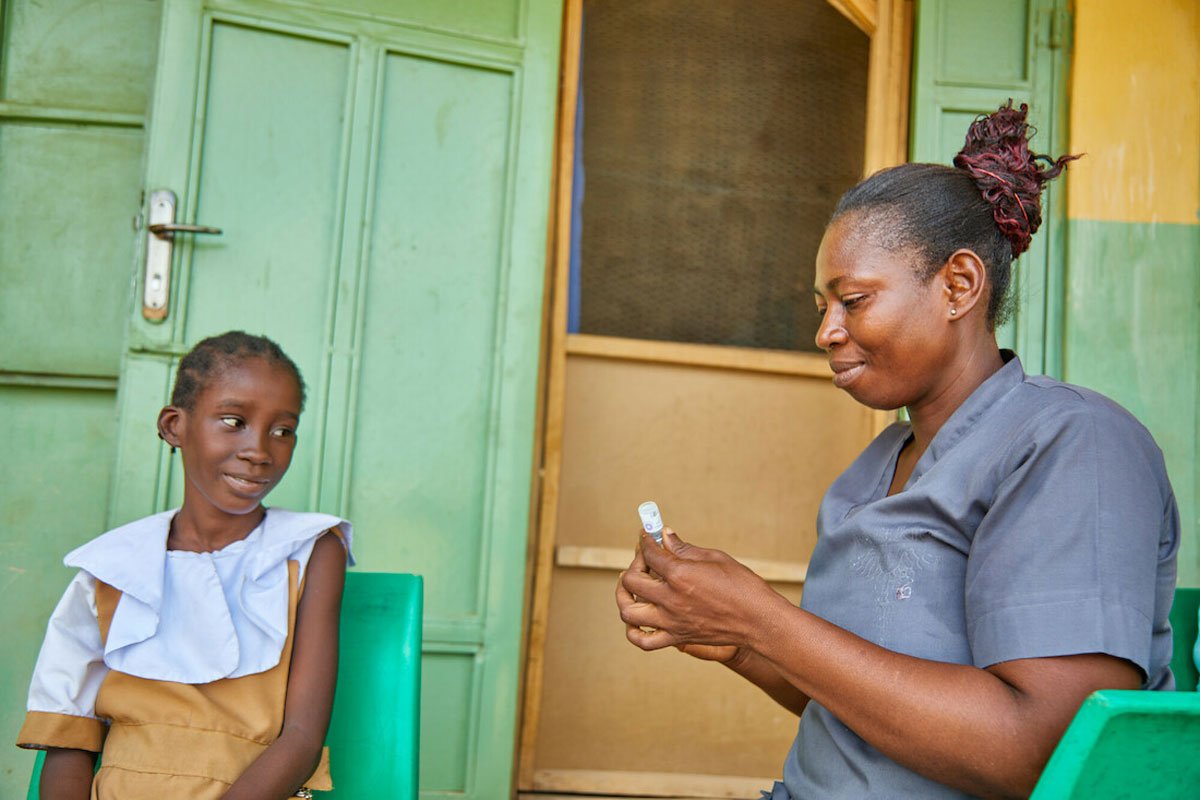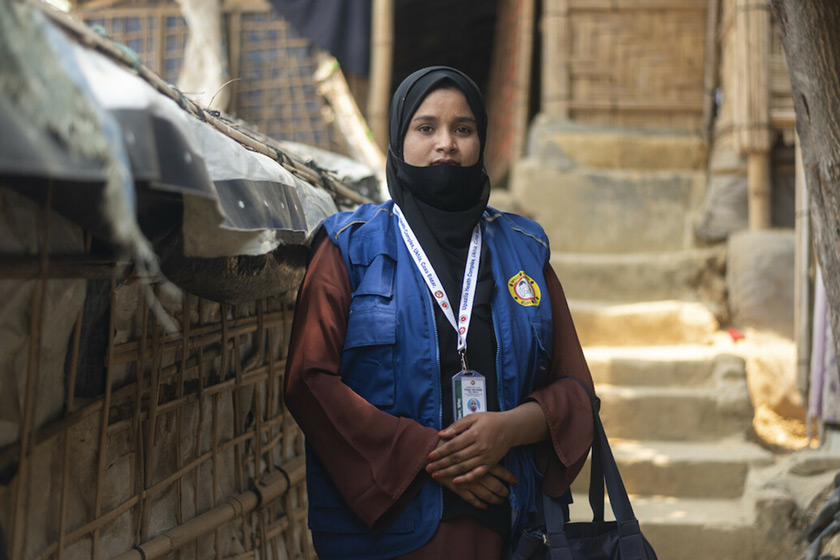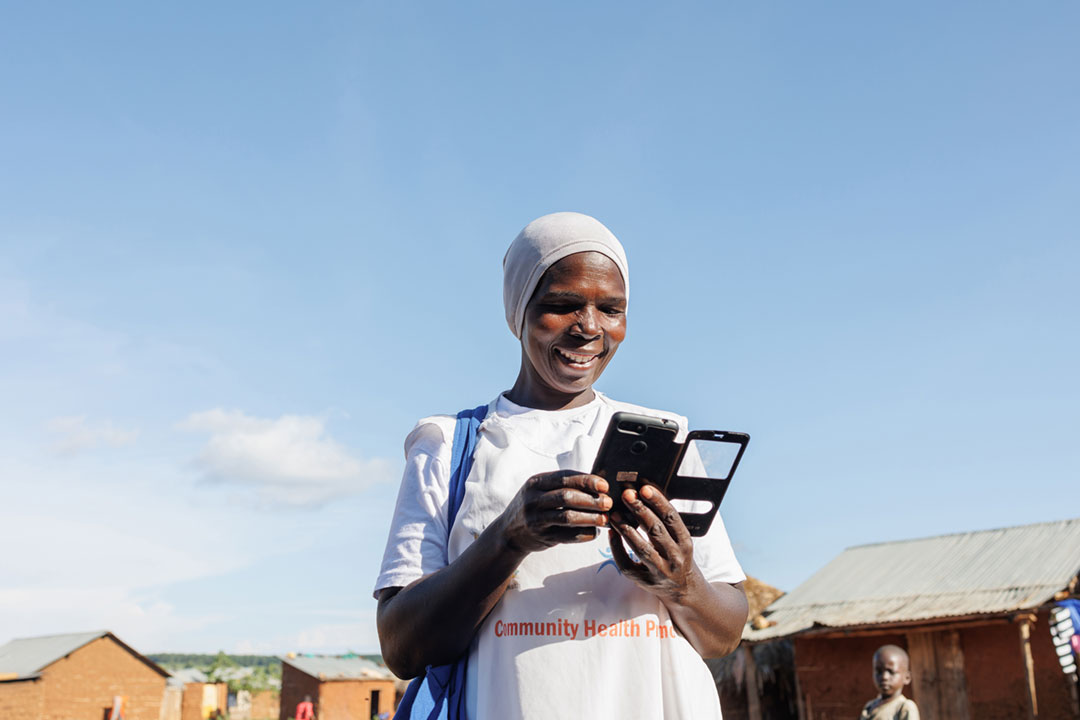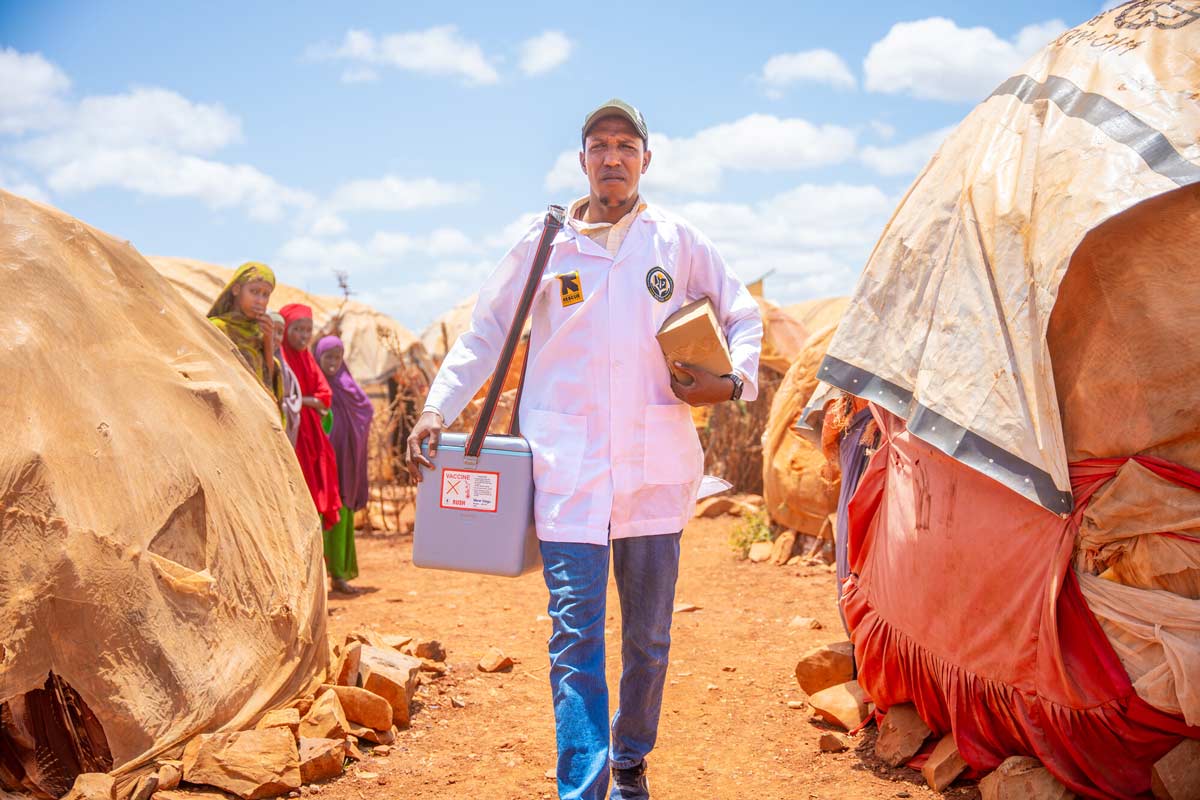Nigerian health workers to share what works in a country-wide 'collaborative'
Health workers from across Nigeria are sharing their experiences of overcoming local challenges through creative solutions and community engagement.
- 22 July 2024
- 5 min read
- by Ian Jones , Charlotte Mbuh

Nigeria faces significant hurdles in ensuring universal vaccine coverage, with an estimated 4 million children missing out on vaccinations each year. A new “Immunization Collaborative”seeks to address this by connecting health workers from across the country, enabling them to share experiences, develop solutions to local challenges and learn from each other’s successes.
Launched in partnership with the National Primary Health Care Development Agency (NPHCDA), UNICEF and the Geneva Learning Foundation (TGLF), this initiative has already connected over 2,900 health workers from all 36 States in Nigeria and 239 of the country’s districts, known as “Local Government Areas” (LGAs). The aim is to tap into their day-to-day experiences – complementing conventional forms of immunisation data – to help drive change.
The collaborative is led by a network of Nigerian health leaders who learned to defy distance to work together in the Movement for Immunization Agenda 2030, launched in 99 countries in 2022.
Ahead of the collaborative’s official launch (register here), Nigerian health professionals were invited to share their experiences of overcoming local immunisation barriers. Their responses, compiled in the collaborative’s first collection of Experiences Shared, provide fascinating insights into the approaches that have helped to boost vaccine uptake across diverse settings.
Have you read?
In Calabar South, Nigeria, Vivian Ajoku and her team tackled vaccine hesitancy during the HPV vaccine roll-out through a community-driven approach:
“We formed a community-based drama group whose aim is to expose the dangers of cervical cancer through short skits in their local dialects. These skits were presented at churches, market places and community gathering. This strategy got the attention of the community leaders who invited our team to conduct an outreach to sensitize their community members on the benefits of the HPV vaccine. This resulted to a 100% uptake of the HPV vaccine in the community.”
In Dobi Community, Gwagwalada, Abuja, Rebecca Bello described her approach to addressing both access issues and vaccine hesitancy:
“There are lots of people who don’t want to accept immunization and there are some who don’t have access to the PHC at their villages, they have to travel far to the central PHC for immunization. I held a meeting with the few PHC staffs and volunteers and we decided to take the vaccine to some of these villages twice a month. I learn that most of these people need explanation in their own dialect to better understand, that is why I use more of the community people during the visit for easy interpretation.”
Udu Chibuike Agbadu, working at Ameku Health Center in Ohaukwu local government, Ebonyi State, shared a creative approach to increasing vaccination rates:
“In my community, I noticed a low vaccination rate due to misinformation and lack of access to healthcare services. To address this, I organised a community event with a twist – a ‘vaccination festival'! We set up vaccination stations, provided educational materials, and offered incentives like free health checks and refreshments. The event was a success! We vaccinated over 100 individuals, and the community responded positively to the innovative approach.”
In Gashua, Nigeria, Fatima Ado Garba highlighted the importance of seizing opportunities to vaccinate children during other health visits:
“One such memorable experience involved a mother who brought her young daughter to our facility for a routine check-up due to a mild respiratory infection. As I conducted the check-up, I engaged the mother in a conversation about her child’s overall health and vaccination status. Through our discussion, I discovered that her daughter had missed several key vaccinations due to the family’s recent relocation and the disruptions caused by it.”
Garba was able to administer the necessary vaccines during the same visit, saving the mother an additional trip and ensuring the child was up to date with her immunisation schedule.
In Ogbomoso, Oyo State, Eegunjobi Anifat Omowumi shared a poignant story of how addressing vaccine hesitancy required sensitivity and confidentiality:
“A baby was rushed to my facility. The baby was convulsed and the mother was crying thinking that the baby will not survive it as the baby is the only survivor child for her. Myself and the hospital tried to stabilize the child and when the mother calmed down to see her child had come around, I called the mother to my office confidentially to ask some vital questions about immunization, when I got to know that the child had never been given immunisation. I asked the mother further the reason why she didn’t take her child for immunization. She confided in me that, due to a still birth, a herbalist warned her not to immunise her child.”
Through careful counselling and by involving the child’s father, Omowumi was able to convince the parents to start vaccinating their child.
The core of the Collaborative is a two-week, locally led action learning exercise, set to begin on 23 July. Participants will engage in the Geneva Learning Foundation’s blend of activities to find the root causes of their local immunisation challenges. In the process, they will learn to support each other, sharing lessons learned and local solutions.
Upon completion of this first exercise, participants will earn a first level of certification from the Geneva Learning Foundation, NPHCDA and UNICEF. More importantly, they will be ready to begin implementing corrective actions that fit the root causes of their challenges, as they continue to support each other.
- Download the first collection of Experiences Shared (18 July 2024) by Nigerian health workers: https://doi.org/10.5281/zenodo.12783459
- Learn more about the Nigeria Immunization Agenda 2030 (IA2030) Collaborative https://www.learning.foundation/nigeria
- Listen to the Immunization Collaborative dialogues https://music.youtube.com/watch?v=-nDAnX3V620









